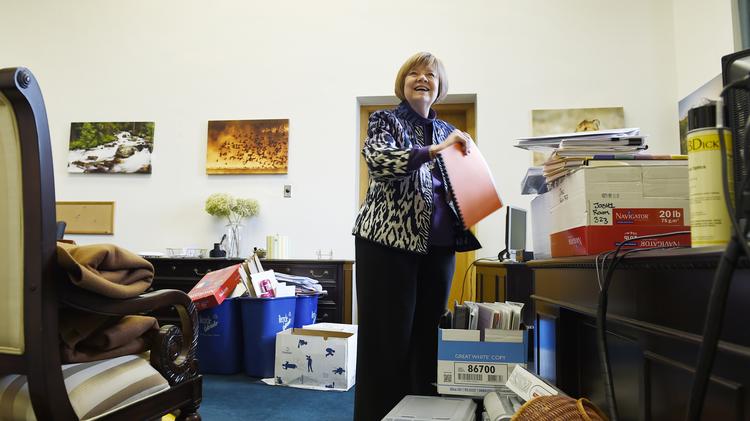Business leaders battle Republican lawmaker in hospital-fee bill hearing

Overcrowded highways like this stretch of C-470 near Yosemite would be a primary beneficiary of the hospital-provider fee bill, business leaders argue.
Colorado business leaders charged into the state Capitol Tuesday to advocate for a newly introduced change in the hospital provider fee that they believe will increase funding for transportation and education — and ran right into a key Republican legislator who questioned whether they would be taking revenues illegally from companies and individuals that need them more.
House Speaker Dickey Lee Hullinghorst’s long-planned bill to pull some $700 million out from under the Taxpayer’s Bill of Rights (TABOR) revenue cap and turn it into an enterprise fund received its first hearing in the House Appropriations Committee Tuesday, one day after it was introduced.
Committee Democrats passed it onto the House floor over the objections of Republicans, the first of several steps in what is expected to be a weeks-long fight over one of the most watched measures of this legislative session.
The seven-year-old provider fee charges hospitals for each night a bed is occupied, leverages that money to get an equal amount of federal matching funds and expands the eligibility of childless adults for Medicaid, reducing the burden of uncompensated care on hospitals.
By turning the fee into an enterprise, it frees a lot more room for the state to collect new revenues without reaching its TABOR cap and having to give back any excess money as tax refunds.





